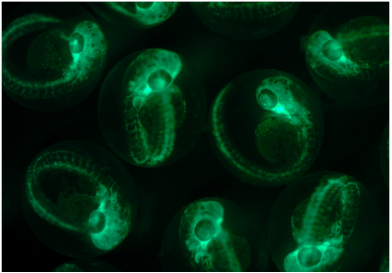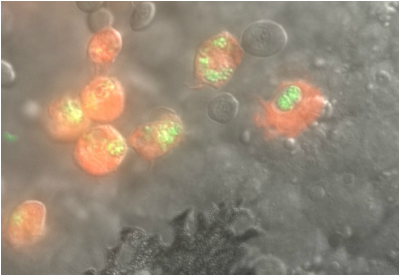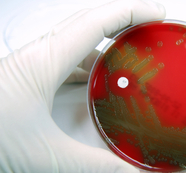Our research
|
The Florey Institute is addressing one of the world’s biggest biomedical challenges – infectious disease. Our research turns the traditional approach on its head – we want to treat the person, rather than simply kill the bacteria.
Inspired by the work of Nobel Prize winner Sir Howard Florey, we’re striving to save lives by understanding how infectious agents interact with our own immune systems. Howard Florey was a former Chair of Pathology at the University of Sheffield. He went on to carry out the first clinical trials for penicillin – a drug which has saved millions of lives worldwide. The Florey Institute is a major, long-term initiative by the University of Sheffield. We’re investing significantly in this groundbreaking project and working with other world-leading institutions and funding partners to develop the scale and ambition of our research.
|
See also
|
A radical new approach
|
Widespread antimicrobial resistance, the limited pipeline of novel antimicrobials and the rapid evolution of micro-organisms are global health problems. In the UK, strategies to deal with disease outbreaks due to resistant organisms have been included by the Chief Medical Officer in the remit of the government’s Cabinet Office Briefing Room A (COBRA) committee.
Our goal is to solve these major issues – and that demands a radical new approach to managing infection, one that is less reliant on using antibiotics to kill the pathogen. At the Florey Institute we’re focusing instead on understanding the interaction between infective bacteria (pathogen) and our own immune systems (host). |
The host-pathogen interaction: a holistic model |
|
In the past, the focus has been on how the pathogen causes disease, with little attention to how the host prevents disease and why this in some cases fails. Comparatively little is understood about how most healthy people avoid serious disease following infection or about the nature of the core components of our immune systems that ensure successful host response to infections.
We’re developing a holistic approach that addresses correction of all aspects of the disease state, rather than the more simplistic and increasingly redundant approach of simply killing the bacteria. |
MRSA and pneumonia
|
Our current research focuses on infections caused by Staphylococcus aureus and Streptococcus pneumoniae. Both organisms are major medical pathogens of global importance.
S. aureus is a big cause of community and hospital-acquired infections. Blood stream infections due to this organism cause approximately 30,000 infections each year. A significant proportion of these are due to methicillin resistant S. aureus (MRSA). These infections have high associated mortality and cost health services tens of millions of pounds annually. |
All experts in one place
|
The Florey Institute brings together academic researchers and clinicians who interact directly with patients – bridging the gap between science and patient care.
We have links with the NHS through Sheffield Teaching Hospitals, which has one of the largest regional infectious disease units in the UK. Projects at the Florey Institute will be multidisciplinary – with microbiologists, physical scientists, engineers and mathematicians all working together. Antimicrobial resistance and the need for new vaccines are big global problems. By combining the unique expertise of scientists and clinicians in Sheffield, we can address these major medical challenges. |
World-class research into infectious diseases is happening right here at Sheffield. The Florey Institute has close links with Imagine: Imaging Life, a revolutionary imaging project at the University of Sheffield. Imagine is unique in the world for harnessing three state-of-the-art imaging techniques. These super-resolution imaging techniques will help us go faster and further with our research. |


